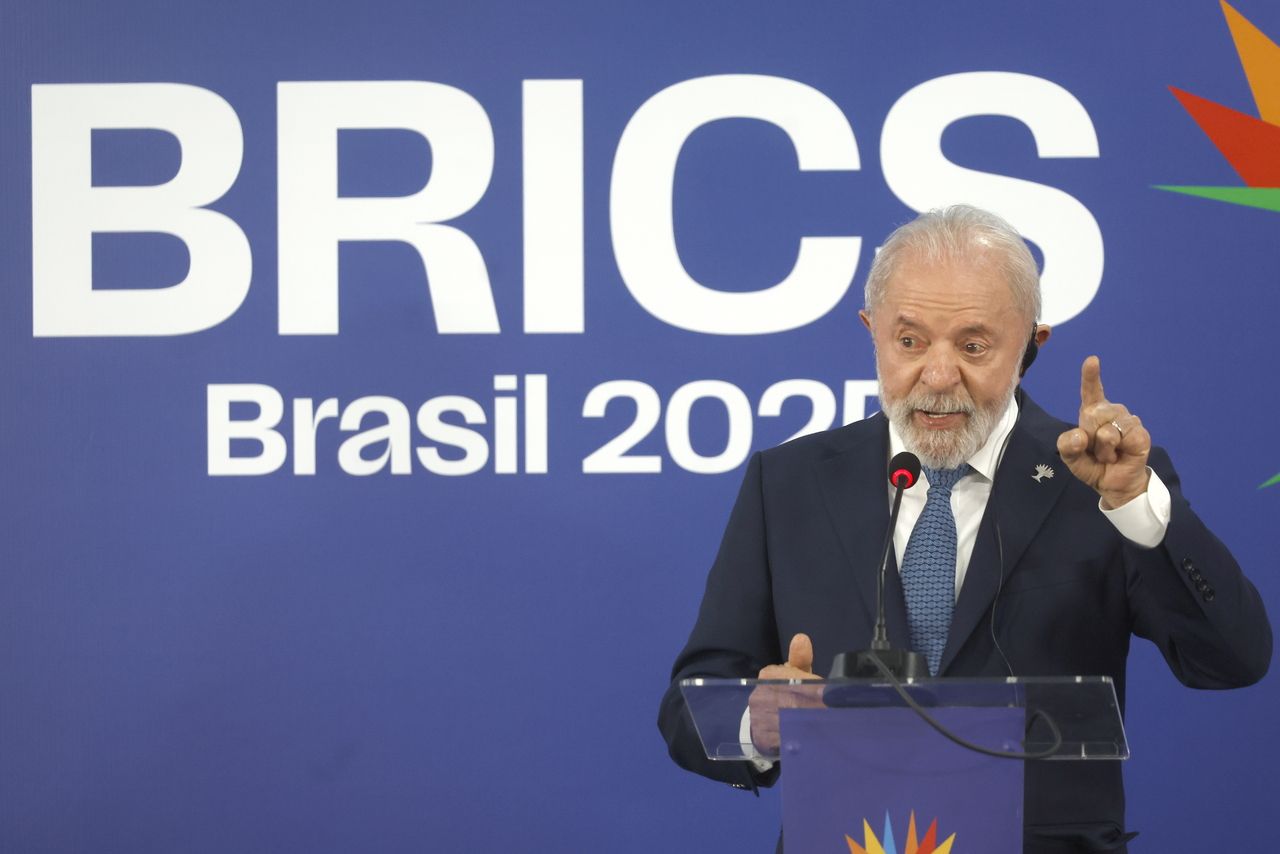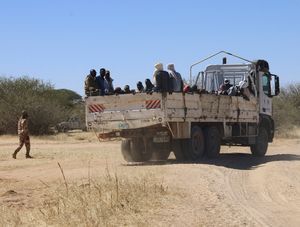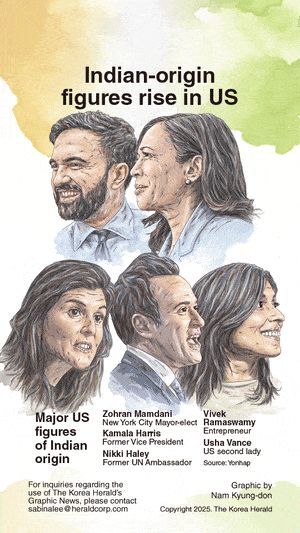 RIO DE JANEIRO (Reuters) — Developing nations at the BRICS summit on Monday rebuffed President Donald Trump’s accusation of being anti-American. Brazil’s president asserted that the world doesn’t need an emperor, responding to Trump’s threats of additional tariffs on the bloc.
RIO DE JANEIRO (Reuters) — Developing nations at the BRICS summit on Monday rebuffed President Donald Trump’s accusation of being anti-American. Brazil’s president asserted that the world doesn’t need an emperor, responding to Trump’s threats of additional tariffs on the bloc.
Trump’s warning on Sunday night came as the U.S. administration was finalizing numerous trade deals with various countries before his July 9 deadline for imposing significant retaliatory tariffs.
According to a source familiar with the matter, the Trump administration doesn’t plan to immediately impose the threatened 10 percent tariff on BRICS nations. However, it will act if individual countries adopt policies deemed anti-American by his administration.
At the conclusion of the BRICS summit in Rio de Janeiro, Lula stood firm when questioned about Trump’s tariff threat. “The world has changed. We don’t need an emperor,” he declared.
“This group of countries aims to restructure the global economy,” he said, referring to the bloc. “I believe that’s why the BRICS make some people uneasy.”
In February, Trump warned that BRICS would face 100 percent tariffs if they undermined the U.S. dollar’s role in global trade. Brazil’s BRICS presidency had already backed away from efforts to advance a common currency for the group, proposed by some members last year.
However, Lula reiterated on Monday that global trade needs alternatives to the U.S. dollar.
“The world needs to find ways for our trade relations to not depend solely on the dollar,” Lula told reporters at the end of the BRICS summit in Rio de Janeiro.
“Naturally, we must approach this responsibly. Our central banks need to discuss this with their counterparts in other countries,” he added. “This is a gradual process that will unfold until it’s fully established.”
Other BRICS members also subtly pushed back against Trump’s threats.
South African President Cyril Ramaphosa told reporters that the group doesn’t aim to compete with any other power and expressed confidence in reaching a trade deal with the U.S.
“Tariffs should not be used as tools for coercion and pressure,” said Mao Ning, the Chinese Foreign Ministry spokesperson, in Beijing. She added that BRICS advocates for win-win cooperation and doesn’t target any country.
A Kremlin spokesperson stated that Russia’s cooperation with BRICS is based on a shared worldview and will never be directed against third countries.
India did not provide an immediate official response to Trump.
Many BRICS members and several partner nations heavily depend on trade with the United States.
Airlangga Hartarto, Indonesia’s senior economic minister and new BRICS member, is in Brazil for the summit and plans to visit the U.S. on Monday to oversee tariff talks, an official told Reuters.
Malaysia, attending as a partner country and previously hit with 24 percent tariffs that were later suspended, stated that it maintains independent economic policies and doesn’t focus on ideological alignment.
As forums like the G7 and G20 struggle with divisions and Trump’s disruptive America First approach, the BRICS group has positioned itself as a haven for multilateral diplomacy amid global conflicts and trade wars.
In a joint statement released Sunday afternoon, summit leaders condemned the recent bombing of member nation Iran and warned that rising tariffs threaten global trade, continuing their veiled criticism of Trump’s tariff policies.
Hours later, Trump threatened to punish countries seeking to join the group.
The original BRICS group brought together leaders from Brazil, Russia, India, and China at its first summit in 2009. The bloc later added South Africa and expanded last year to include Egypt, Ethiopia, Indonesia, Iran, and the United Arab Emirates as members.
Saudi Arabia has yet to formally accept an invitation for full membership but is participating as a partner country. Over 30 nations have expressed interest in joining BRICS, either as full members or partners.










Most Commented